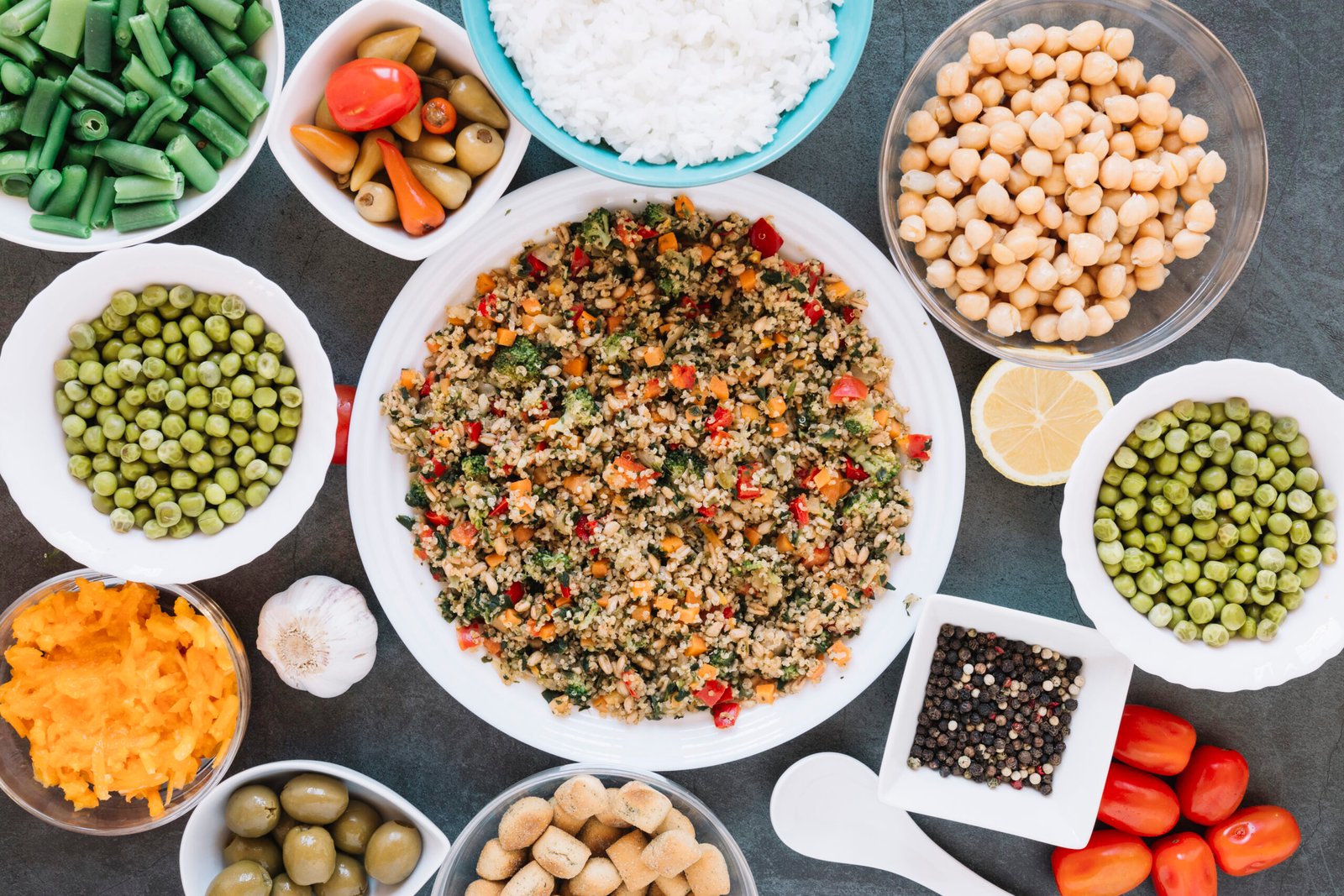
Protein is a vital nutrient that plays a crucial role in building and repairing body tissues, producing enzymes, and maintaining overall wellness. Whether your goal is muscle growth, weight management, or simply staying healthy, understanding the importance of dietary protein and choosing the right sources is essential.
Proteins are vital for:
- Building Muscle and Tissues
- Producing Hormones and Enzymes
- Supporting Immune Function
- Promoting Healthy Skin, Hair, and Nails
Benefits of Protein
Muscle Growth and Repair:
- Consuming sufficient protein supports muscle repair and development, making it indispensable for athletes and fitness enthusiasts.
Weight Management:
- Foods rich in protein promote satiety, helping to curb hunger and support weight loss goals.
Boosts Metabolism:
- The body uses more energy digesting protein compared to fats and carbohydrates, which can enhance metabolic rate.
Supports Bone Health:
- Protein intake is linked to better bone density, lowering the chance of fractures.
Improves Immune System:
- Proteins form antibodies that protect the body from infections and illnesses.
How Much Protein Should You Consume?
The recommended daily intake varies based on factors like age, gender, and activity level:
- Sedentary Adults: 0.8 grams per kg of body weight
- Active Individuals: 1.2–2.0 grams per kg
- Athletes and Bodybuilders: 1.5–2.5 grams per kg
For example, a person weighing 70 kg with a sedentary lifestyle requires approximately 56 grams daily (70 kg × 0.8 g).
Top Vegetarian Protein Sources
Lentils (9g per 100g):
- Rich in fiber, iron, and folate. Ideal for soups, stews, and salads.
Chickpeas (19g per 100g):
- Versatile for hummus, curries, and roasted snacks.
Quinoa (8g per 100g):
- A complete protein containing all nine essential amino acids.
Tofu (8g per 100g):
- High in protein and calcium. Great for stir-fries, scrambles, and grilling.
Tempeh (18g per 100g):
- Fermented soybeans with a firm texture and a nutty flavor.
Chia Seeds (16g per 100g):
- Packed with omega-3s and antioxidants. Add to smoothies, puddings, or oatmeal.
Pumpkin Seeds (19g per 100g):
- A crunchy snack and salad topper, also rich in magnesium.
Almonds (21g per 100g):
- High in protein, healthy fats, and vitamin E.
Black Beans (21g per 100g):
- Ideal for burritos, soups, and veggie burgers.
Protein is more than just a nutrient — it’s a cornerstone for muscle development, metabolic health, and overall vitality. By diversifying your intake with various protein-rich foods, you can meet your nutritional needs and enjoy a balanced, healthy lifestyle.






